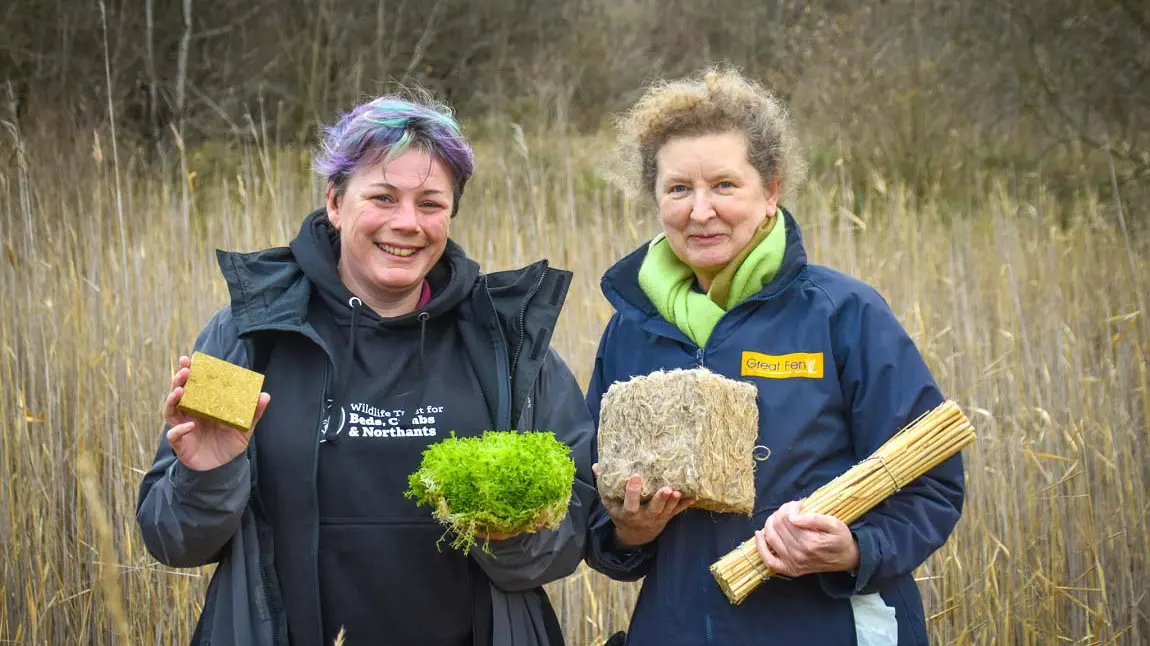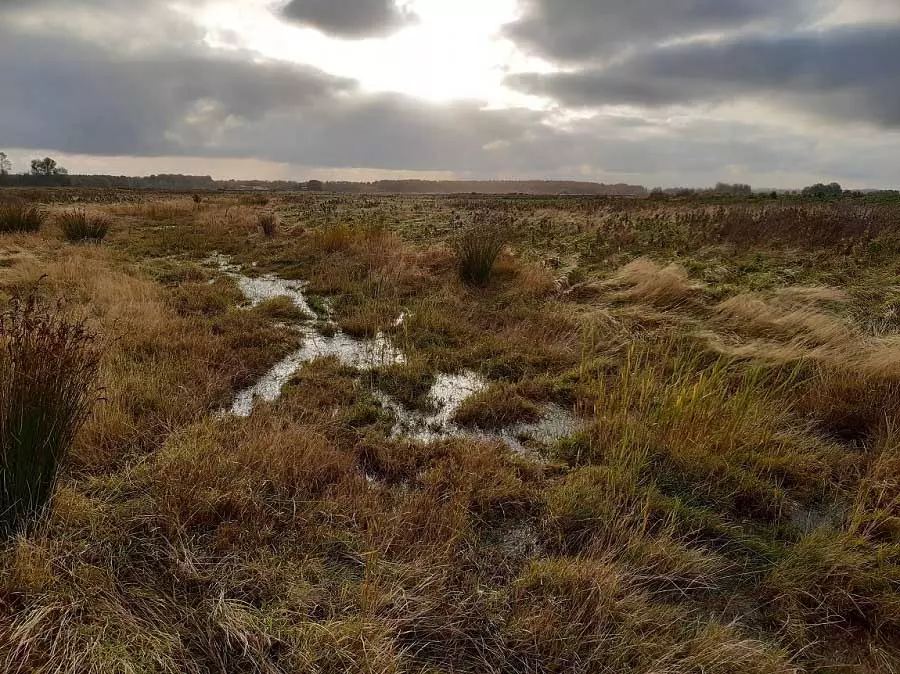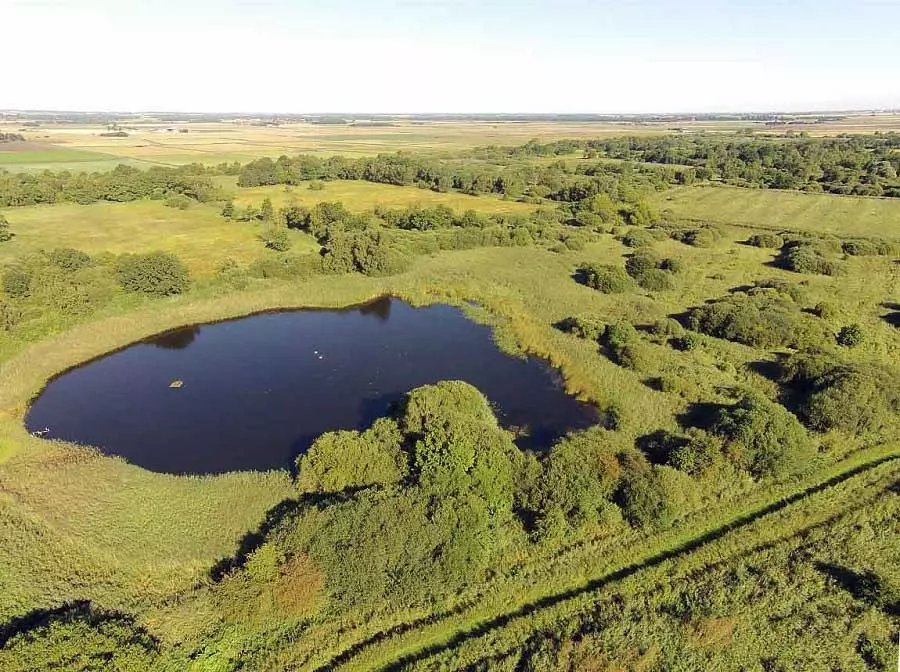£8million Heritage Horizon Award to visionary Fens Peatland project

Forget artificial insulation – in the future, our houses could be kept warm with bulrush seed-heads. The plant is one of several being grown as part of Peatland Progress: A New Vision for the Fens, supported by a Heritage Horizon Award of more than £8m.
Thanks to National Lottery players, the purchase of a parcel of land – Speechly’s Farm – will bring together two halves of the Great Fen and see land transformed into a mix of reedbeds, open water, and wet and dry grassland, providing additional habitat for the threatened wildlife.
The partnership project will develop a model of agricultural production, which they hope will inspire and change farming practice on peat soils across the UK.
This pioneering and important work is tackling climate change and biodiversity loss, while also addressing the anxieties of the next generation head-on.
Brian Eversham, Chief Executive of The Wildlife Trust for Beds, Cambs & Northants
Bulrush, reed, floating sweet grass and sphagnum moss can be grown in water-logged areas – keeping peat wet, preventing soil erosion and oxidisation and locking in CO2.
The Wildlife Trust and their partners are exploring uses for these experimental crops:
- The fluffy seed-heads of bulrush are already used in Germany to make insulation products for walls and roof spaces, and have the potential to be used in sustainable packaging.
- Sphagnum moss can replace peat as a growing medium for salad crops and its absorbent and antiseptic properties have medical and sanitary applications such as wound-dressing.
- Reeds are used traditionally for thatching and can also be processed into sheet material or used as biofuel.
Brian Eversham, Chief Executive of The Wildlife Trust for Bedfordshire, Cambridgeshire and Northamptonshire, said: "The Peatland Progress project will further develop a model of agricultural production, preventing loss of peat soils to help future-proof farming while locking in carbon, cleaning water and supporting wildlife. This pioneering and important work is tackling climate change and biodiversity loss, while also addressing the anxieties of the next generation head-on."
Hope for the future of farming
Farming on peat soils will also transform the landscape and secure the future for people, soils and wildlife of the Fens – from local prosperity and employment, to wellbeing and coronavirus (COVID-19) recovery.
Protecting the environment and supporting nature was endorsed by thousands of you who gave your views to help shape our new 10-year strategy, due for launch in early March. We will work with partners to deliver our shared vision that heritage is valued, cared for and sustained for everyone, now and in the future.
Eilish McGuinness, Chief Executive of the Heritage Fund, said: “It is so exciting to be able to confirm our award of over £8million to Peatlands Progress, a truly ambitious and visionary project. The scheme – part of our Heritage Horizon Awards programme which focused on innovation in heritage – is a pioneer, leading the way for the Heritage Fund’s future ambition to champion large-scale, long-term and innovative solutions to climate change and nature’s crises, with people at the core.”
Discover more
Peatland Progress is one of five ambitious and transformational projects across the UK to be awarded Heritage Horizon Awards.
Find out more about how we can help you and our commitment to tackling the climate crisis.




